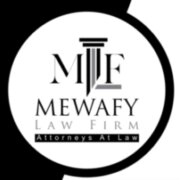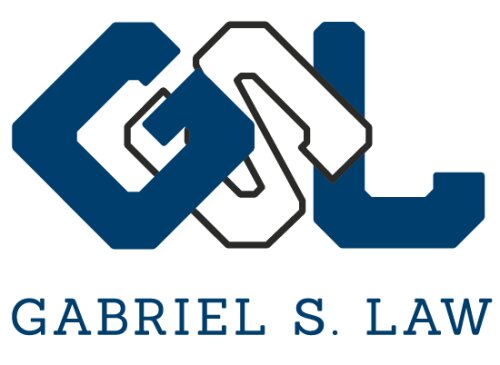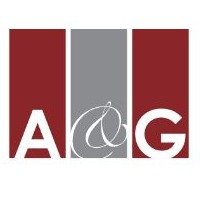Best Debt & Collection Lawyers in Illinois
Share your needs with us, get contacted by law firms.
Free. Takes 2 min.
Or refine your search by selecting a city:
List of the best lawyers in Illinois, United States
About Debt & Collection Law in Illinois, United States
Debt and collection law in Illinois refers to the legal rules and procedures governing the collection of outstanding debts from individuals and businesses. The process includes attempts by creditors and third-party collection agencies to recover money owed, as well as the rights and protections of debtors. Illinois follows both federal guidelines, such as the Fair Debt Collection Practices Act (FDCPA), and its own state laws to regulate fair and lawful practices in debt collection. These laws are designed to balance creditors' rights to recover funds with protections for consumers against abusive or unethical practices.
Why You May Need a Lawyer
Seeking legal advice in debt and collection matters can be very beneficial in several situations:
- You have been contacted by debt collectors and are unsure of your rights or how to respond.
- There are threats of legal action, lawsuits, or wage garnishment due to unpaid debts.
- You believe you do not owe the debt, the amount is incorrect, or identity theft may be involved.
- You are facing harassment, abusive language, or unfair practices from creditors or collection agencies.
- You want to negotiate a repayment plan, settlement, or explore bankruptcy options.
- A creditor has obtained a judgment against you, or you wish to challenge a collection lawsuit.
- You need help understanding court documents, deadlines, or responding to legal complaints.
Lawyers experienced in debt and collection law can advise you on your legal options, rights, and the best way to resolve your situation, helping protect your financial interests and peace of mind.
Local Laws Overview
In Illinois, debt collection is governed by both federal laws and specific state statutes. Key aspects of local regulations include:
- Illinois Collection Agency Act: This state law regulates the conduct of collection agencies operating within Illinois. All agencies must be licensed and are subject to rules that restrict abusive or deceptive practices.
- Fair Debt Collection Practices Act (FDCPA): Although a federal law, the FDCPA also applies in Illinois, and it outlines what debt collectors can and cannot do when collecting a debt.
- Time Limits (Statute of Limitations): In Illinois, most consumer debts have a statute of limitations of five years for oral contracts and ten years for written contracts. This means collections must begin within these time periods.
- Wage Garnishment Rules: Creditors may seek wage garnishment through court orders, but Illinois limits the amount that can be garnished from your pay, protecting a portion of your income.
- Judgment and Collection Enforcement: Once a creditor obtains a court judgment, they may pursue additional remedies like bank account levies or property liens, but certain exemptions apply.
- Required Notices and Validation: Collectors must provide written notice of the debt and inform you of your right to dispute it within a specific timeframe.
Staying informed about these rules ensures you understand both your rights and responsibilities when managing debt in Illinois.
Frequently Asked Questions
What can I do if a debt collector is harassing me in Illinois?
You can request the collector to stop contacting you, report harassment to the Illinois Department of Financial and Professional Regulation (IDFPR) or the Consumer Financial Protection Bureau, and consult a lawyer about your rights under state and federal law.
How long does a creditor have to try to collect a debt in Illinois?
The statute of limitations in Illinois is generally five years for oral contracts and ten years for written contracts. After this period, a collector cannot legally sue you for the debt, though they may still attempt to collect it informally.
Can my wages be garnished for unpaid debts in Illinois?
Yes, but only after the creditor obtains a court judgment against you. Illinois law limits the amount that can be garnished, generally up to 15 percent of your gross wages or the amount by which your weekly net income exceeds 45 times the state or federal minimum wage, whichever is greater.
What is the Illinois Collection Agency Act?
The Illinois Collection Agency Act is a state law that governs the conduct and licensing of collection agencies in Illinois, ensuring that agencies follow fair and lawful collection practices.
Do I have to pay a debt that is past the statute of limitations?
You are not legally obligated to pay a debt after the statute of limitations expires, and collectors cannot sue you for it. However, if you make a payment or acknowledge the debt in writing, the time period can restart.
How can I dispute a debt with a collection agency?
Send a written dispute letter to the collection agency within 30 days of receiving the first notice. The collector must then cease collection efforts until they verify the debt and provide documentation.
Is bankruptcy an option for getting rid of debts in Illinois?
Yes, bankruptcy may be an option to discharge many forms of unsecured debt. It is a complex legal process that should be discussed with an experienced attorney to determine if it is right for your situation.
What should I do if I am sued by a creditor or collection agency?
Do not ignore the lawsuit. Respond to the court summons, seek legal advice promptly, and consider negotiating or defending the claim. Failing to respond may result in a default judgment against you.
Can a debt collector contact my employer or family members?
Collectors may contact others only to locate you, but they cannot discuss your debt details, and repeated contact is generally prohibited. They cannot contact you at work if you inform them not to.
Where can I get free or low-cost legal help with debt collection problems in Illinois?
You can seek assistance from legal aid organizations, public defender services, or private attorneys who offer free consultations or sliding-scale fee arrangements. Resources like Illinois Legal Aid Online provide guidance and referrals.
Additional Resources
Illinois residents seeking help with debt and collection issues can reach out to the following organizations and agencies:
- Illinois Department of Financial and Professional Regulation (IDFPR) - for complaints against collection agencies
- Office of the Illinois Attorney General - for consumer protection and complaints
- Illinois Legal Aid Online - for free legal information and resources
- Legal Assistance Foundation - provides direct legal services to eligible individuals
- Consumer Financial Protection Bureau (CFPB) - for federal complaints and educational resources
- Local bar associations - can refer you to attorneys experienced in debt and collection law
These resources can provide both self-help materials and direct assistance for those facing debt-related legal challenges.
Next Steps
If you are dealing with debt collection issues in Illinois, take the following steps:
- Stay calm and gather all relevant documents, including notices, letters, and any records of communication.
- Review your rights under Illinois and federal law, and do not ignore court papers or official correspondence.
- Consider reaching out to one of the legal aid organizations or the Bar Association for a referral to a qualified attorney.
- Schedule a consultation to discuss your situation, especially if you are being sued, facing wage garnishment, or believe you are a victim of unlawful collection practices.
- Follow your attorney’s advice and respond to deadlines promptly to protect your rights and interests.
Early action and understanding your legal options are key to resolving debt and collection issues efficiently and effectively.
Lawzana helps you find the best lawyers and law firms in Illinois through a curated and pre-screened list of qualified legal professionals. Our platform offers rankings and detailed profiles of attorneys and law firms, allowing you to compare based on practice areas, including Debt & Collection, experience, and client feedback.
Each profile includes a description of the firm's areas of practice, client reviews, team members and partners, year of establishment, spoken languages, office locations, contact information, social media presence, and any published articles or resources. Most firms on our platform speak English and are experienced in both local and international legal matters.
Get a quote from top-rated law firms in Illinois, United States — quickly, securely, and without unnecessary hassle.
Disclaimer:
The information provided on this page is for general informational purposes only and does not constitute legal advice. While we strive to ensure the accuracy and relevance of the content, legal information may change over time, and interpretations of the law can vary. You should always consult with a qualified legal professional for advice specific to your situation.
We disclaim all liability for actions taken or not taken based on the content of this page. If you believe any information is incorrect or outdated, please contact us, and we will review and update it where appropriate.
Browse debt & collection law firms by city in Illinois
Refine your search by selecting a city.













